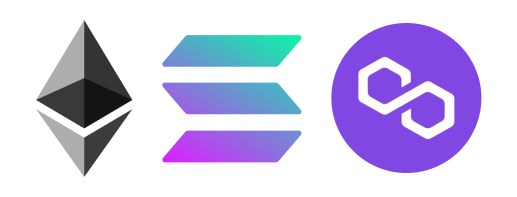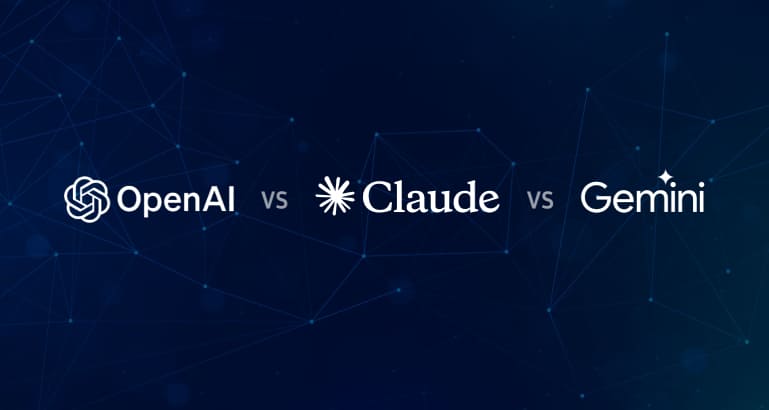A Detailed Analysis- Solana vs Polygon vs Ethereum
Upon the meticulous research into the market, it is clear that blockchain technology has paved the path to getting rid of the traditional shortcomings in the financial sector. The world economy has soared, attaching merit and benefits to paper to form currency notes to back up digital art with value.
Bitcoin, Ethereum, Litecoin, etc., are some of the early currencies that came into the market and saw great height. The acceptance and interest of these currencies in the market were exceptional. Blockchain technology has the potential to revolutionize every possible sector from gaming to art, retail to logistics, payment system to healthcare, fashion to supply chain management, and much more. This paradigm shift is giving opportunities to us in a new way to access and explore new adventures. NFTs and DeFi are considered to be the significant trends of Blockchain technology that are inevitable. As the trend continues, every day a better blockchain solution is awaited for considerable growth and to catch the fast pace of time. In this race of developing a better blockchain solution, a major comparison that draws everybody’s attention- Solana vs Polygon vs Ethereum.
At Nu10 technology, these are three major giants that are considered to be the ideal peak for developing DeFi and NFT projects. Therefore, Nu 10- a blockchain consulting company wants to put a detailed analysis of all the leading blockchain networks.
Reason For This Comparison
We are comparing here Solana with Polygon and Ethereum. So, just one factor does not count. Everything that includes in the development of the ecosystem counts. It may be exchange value, gas fees, smart contract development, and all factors that revolve around the blockchain network.
The volatility in the gas prices of Ethereum is a point of stress for investors. Even though, Ethereum is the base for the development of DeFi projects, NFT projects, and Smart Contract., it throws multiple challenges to its participants. And new blockchain development solution came up with Solana to solve these challenges. It offered lower transaction fees and speedy transactions. On the other hand, Ethereum came up with ETH 2.0 with some improvements and upgrades. Ethereum’s diverse and transparent ecosystem is unmatched. Thus, a comparison is a must!
A Brief Introduction About All The Three Blockchain Networks
Ethereum
The popular name in the arena of blockchain space for the development of decentralized applications, and NFT projects is Ethereum. It has provided data-efficient services in a transparent and decentralized manner. An open blockchain network that empowers accessibility to its participants across geographical boundaries.
It has an active users crowd that has led to the popularity of NFTs. Thus, with the birth to the mature stage of NFTs, Ethereum continues to be the favorite for offering multiple NFT services. The point to note is that Ethereum uses a Proof-of-Work consensus mechanism, which requires an immense amount of energy.
Solana
When the blockchain arena was facing multiple challenges with Ethereum, a new decentralized blockchain network was launched- the Solana network. It was developed with minute details for overcoming all the challenges of the blockchain arena (Ethereum). It is highly scalable, user-friendly, has lower gas fees transactions, and higher transaction speed per second.
Its efficient ecosystem features more than 400 DeFi, NFT, and Web 3.0 solutions. As stated earlier, its TPS is 3000 transactions per second and can handle transactions between 50,000-65, 000 per second. Thus, a very strong competitor in the blockchain arena.
Polygon
Polygon is now known as Matic or Internet of Ethereum. It is called as Internet of Ethereum because it focuses on validating the multichain ETH ecosystem. Polygon is known for its interoperability feature. It has developed an infrastructure that has been modified to provide an interoperability feature with a layer two solution. And, it has one of the prominent features of being the fastest for completing transactions.
Few Aspects We Should Discuss

Consensus Mechanism
Ethereum - Ethereum uses POW (Prof-Of-Work) consensus mechanisms that consume high energy. Thus, a limited number of participants have scope to use the ecosystem. It is one of the factors that guarantee security and decentralization in the ecosystem but also decreases performance.
Polygon - Polygon uses a Proof-Of-Stake consensus mechanism that helps in securing the network and creating new Matic tokens. With a combination of technology, it offers the fastest blockchain network apace with the main ETH network.
Solana - Solana leverages a hybrid consensus mechanism that is a perfect blend of Proof Of History and Proof Of Stake. Thus, its efficiency increase offering speedy transactions, flexibility, scalability, etc.
Transaction Speed
Ethereum - The operation and management of a network is taken care of by the distributed ledger holders. And, the popularity of Ethereum is high. It is crowded. Thus, it validates only a limited number of transactions every second. The gas fee is also an issue.
Polygon - Polygon leads the race in terms of transaction speed. It computes 65000 transactions per second.
Solana - By leveraging GulfStream to push transactions to the edge, Solana executes 50,000 transactions every second
Architecture
Ethereum - Ethereum has a stateful architecture where all transactions are recorded. Then, the latest transaction copies should be updated in the network. Thus, it results in slower transaction execution.
Polygon - Polygon’s architecture facilitates interoperability. Its sidechain executes like Proof-Of-Stake of other Blockchain networks.
Solana - Solana architecture works on a cluster that is a collection of validators. Validators complete the transaction and maintain it in the ledger. One single validator is not responsible for validation, the job keeps on rotating. By leveraging Proof Of History consensus, cluster leaders are responsible for bundling and timestamping all the arriving arrangements. Thus, a bundle of transactions is taken care of together, rather than validating one single transaction every time. Moreover, Solana has a stateless architecture that offers scalability to the entire ecosystem.
Scalability
Ethereum - In the case of Ethereum, its transaction speed is 15 transaction speeds per second, which is slower. But with the development of the layer-two solution, Ethereum is working on it.
Polygon - In the case of the Polygon network, due to the multichain solution, it offers better scalability.
Solana - Solana leverages high-performance protocol and innovative architecture to offer improved processing speed, and an efficient consensus model.
Conclusion
The arrival of blockchain technology with its use case in multiple arenas is seeking everyone’s attention. Any individual aware of cryptos is keen about investing in it. Therefore, anyone who is interested in entering the crypto space has a clear understanding of all the giants of the blockchain arena. Therefore, Nu10 technology has framed out a detailed comparison of Solana vs Polygon vs Ethereum. Ethereum is considered to be the best host for DeFi and NFT applications. But, due to its shortcomings, its users are facing multiple challenges. Solana came into the picture with a better blockchain solution, eradicating all the challenges of the blockchain arena.
You are a newbie or big firm that wants to imitate its decentralized journey but seeking better consulting solutions? Nu10 Technology- a blockchain consulting company that has a zealous team of developers, and consultants. This team of professionals has successfully completed multiple DeFi and NFT projects on different blockchain networks. We provide you with a detailed roadmap of solutions that will take place step by step in the right direction. We offer end-to-end Ethereum development solutions, Solana development solutions, and Polygon development solutions as well.
All you need is guidance to walk through this volatile and dynamic arena. Embrace Nu 10’s crypto, DeFi, NFT, and all other services that revolve around the blockchain arena. Do not hesitate to give us a call. That’s it! Nothing more.
Written by
Dr. Phaneender Aedla
Dr. Phaneender Aedla has over 24 years of experience in handling and managing petabyte-scale data systems. He blends deep technical acumen with strategic vision, and aims to drive intelligent, sustainable innovation through co-creative partnerships that unlock true business value.









